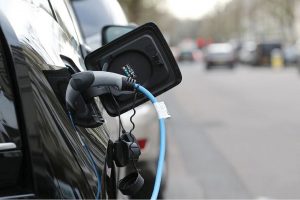THE Department of Trade and Industry (DTI) said it expects around 680,000 jobs to be created under the recently approved Electric Vehicle Incentive Strategy (EVIS).
“The new strategy is expected to attract P120 billion in capital investment that will help spur job creation,” Trade Secretary Ma. Cristina A. Roque said in a statement on Monday.
“The influx of investments will generate about P11.4 trillion in economic output,” she added.
The EVIS is also expected to boost the government’s tax revenue by P400 billion against a full-import EV scenario and generate savings of up to $30 billion in foreign exchange by reducing import dependence.
A component of the Electric Vehicle Industry Development Act (EVIDA), EVIS provides targeted fiscal and non-fiscal incentives that stimulate domestic production of EVs, batteries, parts, charging stations, and testing facilities.
“The incentive structure supports both capital investment and sustained production,” the DTI said.
Under the incentive scheme, eligible companies are required to comply with Philippine and international standards, provide long-term after-sales support, and submit Board of Investments-vetted investment plans.
EVIS sets a production target of 9 million EVs between 2028 to 2040, including two- and three-wheelers, passenger cars, buses, and trucks.
The EVIS also targets the creation of nearly 400,000 charging stations nationwide.
“The DTI is working closely with the FIRB (Fiscal Incentives Review Board) to finalize the EVIS, which is scheduled for deliberation in July 2025,” the DTI said.
EVIDA tasked the DTI to promote and develop domestic EV manufacturing.
Under the law, the DTI is required to develop an EV incentive strategy similar to the Comprehensive Automotive Resurgence Strategy Program, which incentivized domestic assembly of mass-market internal combustion engine cars.
The government is hoping to increase the EV fleet to 2.4 million by 2028 and bring the EV adoption rate to 50% by 2040. — Justine Irish D. Tabile

